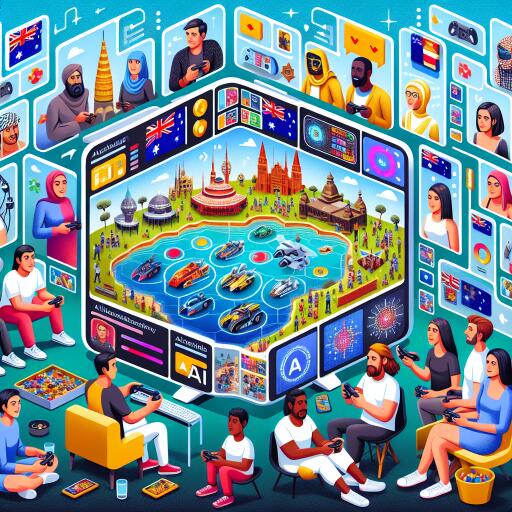Revolutionizing Online Gaming in Australia with AI-Personalisation
The digital era has seen personalisation become a key factor in enhancing user experiences across various sectors, including retail, education, healthcare, and notably, in the online gaming and gambling industries. In Australia, a nation with a burgeoning online gaming community, personalisation through Artificial Intelligence (AI) is not just a trend but a revolutionary approach to gaming. This leap towards personalised online gaming experiences promises not only to enhance entertainment quality but also to potentially foster skill development among gamers.
Transforming Online Pokies with AI
AI and machine learning technologies are at the forefront of crafting personalised gaming experiences, benefiting both the businesses running online platforms and their users. The increasing availability of cloud computing services and AI-as-a-service platforms, coupled with a surge in AI startups, has made integrating data-driven technologies more accessible. These advancements allow for the creation of models that can predict user behavior, enabling personalised interactions tailored to individual users’ needs.
Recommendation systems, a cornerstone of AI personalisation, are gaining traction in the online gaming sector, following the successful footsteps of e-commerce giants like Amazon. These systems analyze players’ preferences to suggest games or features, such as Australian online pokies with instant withdrawal options or games of specific themes, enhancing user engagement and satisfaction.
Hyper-Personalisation in Gaming
As mobile gaming continues to dominate the market, developers are exploring innovative strategies to attract and retain players beyond traditional advertising. Hyper-personalisation emerges as a pivotal strategy, employing AI to create unique, adaptive gaming experiences that consider a player’s level, preferences, and play style. This approach ensures that each game session is engaging, encouraging players to remain invested in the game.
Utilising AI and machine learning allows for the real-time processing of user data, enabling games to adapt dynamically. Techniques such as artificial neural networks model user behavior to tailor game environments, while clustering algorithms segment users into groups based on preferences, facilitating a more personalised game complexity.
Metrics and Ethical Considerations
Gaming companies are now measuring their success in personalisation through key metrics such as player focus and game difficulty, employing various machine learning algorithms to create customised experiences. However, the adoption of AI in personalising online gaming raises important ethical considerations, including transparency, fairness, accountability, and data protection. Ensuring that AI-driven personalisation upholds these principles is critical in maintaining user trust and safeguarding personal information.
Conclusion
AI-driven personalisation is setting a new standard for online gaming in Australia, offering players unparalleled experiences tailored to their preferences and skill levels. As the technology progresses, the focus on ethical AI practices will be paramount in ensuring that these advancements benefit users in a fair, transparent, and secure manner. The future of online gaming lies in personalisation, promising a more engaging and satisfying experience for gamers across the globe.










